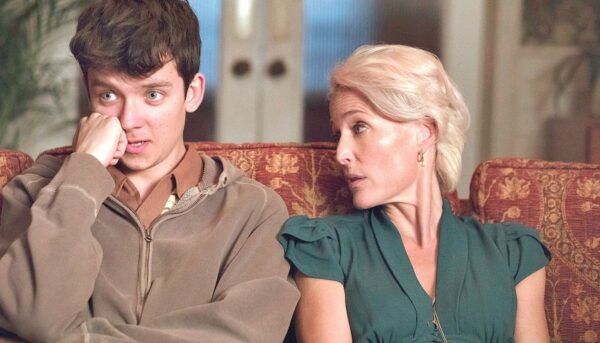Sex Education: the groundbreaking Netflix shows that represents us all
By Megan Oyinka

At this point it feels like almost everyone has heard of, if not already watched, Netflix’s Sex Education. It has been praised and loved by many for showing the funny side ‘coming of age’, whilst also highlighting just how limited the UK’s Personal Social and Health Education (PSHE) is.
The show misses nothing – covering topics from sexual assault, to pregnancy, to fetish, to sexuality and all the way back to the bog-standard STI. It is a show where everyone, whether they want to admit it or not, can relate some aspects to their own life experiences.
For me, Sex Education wasn’t just amazing to watch because the diversity in it felt like a natural coincidence, or because of the fact they managed to create inclusive story lines without a whole host of cringe-worthy stereotypes. Or even because of the fact that they manage to incredibly sensitively cover the unfortunately commonplace issue of sexual assault.
There is in fact a far subtler reason why I loved the show and felt that it was incredibly important. The challenging and nuanced depiction of parent-child relationships really did hit the nail on the head, in terms of creating a sense of realism. Each developed character in the story-line has some sort of non-ideal relationship with their parents; there’s some sort of underlying issue which has followed them into their teenage years and that affects the character’s relationships with all the people around them.
Sex education doesn’t just show us that we need more education on the birds and the bees but that as a society we need to open a dialogue on how to navigate the relationships we have with the people that raised us (or sometimes didn’t in the case of Maeve).
At the moment it feels as if society has a very black and white approach to how we should feel about our parents and caregivers; they are either the best thing that have ever happened to us or they are such awful parents that we are left with no choice but to cut them off entirely.
The truth is, most of us have difficult and uncomfortable relationships with our parents (whom we still love), and it is refreshing to see a far more realistic representation on our screen.

We need to start a dialogue about faulted parenthood. One of the main arguments in the show is to extend the ambit of PSHE so that the students can get an education on healthy romantic relationships.
But it is not a controversial statement to make that our relationship with our parents has a massive effect on our relationships with other people: from our friendships, to who we see as role models, to what we look for in other people and our behaviour in romantic relationships.
For example, if we don’t learn to understand what emotional abuse may look like in the early relationships we have, how do we expect to be able to recognise that in our later romantic relationships or in our own treatment of others? The damage has kind of already been done, the behaviour patterns have been learnt and almost inevitably internalised.
The importance of this type of dialogue doesn’t just come from the prospective advantages of understanding abusive and controlling behaviour. It works retrospectively too, the quicker young people learn that their parents are normal faulted humans, and are able to talk about how some issues in their guardians parenting style have affected them, ultimately the quicker we equip them with the emotional intelligence to work through other trauma. This may in turn improve their relationships and wellbeing in the long run.
I’m not suggesting for one second, that we should start fights at the dinner table every day for the sake of it, but let’s allow people to feel like they can be honest about their relationship with their parents.
Sex Education is the first time we have seen a real representation of the different types of relationships we have with the people who are supposed to guide us through life. It is, by no means, an exhaustive list of every relationship dynamic, but it successfully represents emotionally unavailable parents, single parents, same-sex parents, absent parents, and overbearing parents.
The authentic representation Sex Education has provided is probably a reassurance to so many, that their dynamics are not only normal but they can be overcome through open and honest dialogue.
I challenge anyone to show me a current series where these unconventional (by media standards) relationships are represented, whilst not becoming central basis for the storyline. Show me another programme that shows teen to parent relationships that have tension in the relationship stemming from something other than the fact they want to date but their misogynist dad won’t let them till they are 25.
Many may argue that the parent-child relationship is one that shouldn’t be critiqued in an educational sphere. But we are missing the middle ground once again, our lack of dialogue on faulted parents leads young people with this dichotomy that society projects that parents are either saints or sinners.
Having vulnerable conversations about uncomfortable, deeply personal topics is one of the only ways to truly make peace with ourselves. This dialogue is important not just for those who, similarly to Maeve, may have been subject to overt neglect or abuse from their parents, but for those like Otis, who have a mum that doesn’t always respect their boundaries, or, like Jackson, who feels smothered by his parent’s ambitions for him.
The sooner we decide to learn these lessons and have these conversations the better our relationships and wellbeing will be in the long run.







